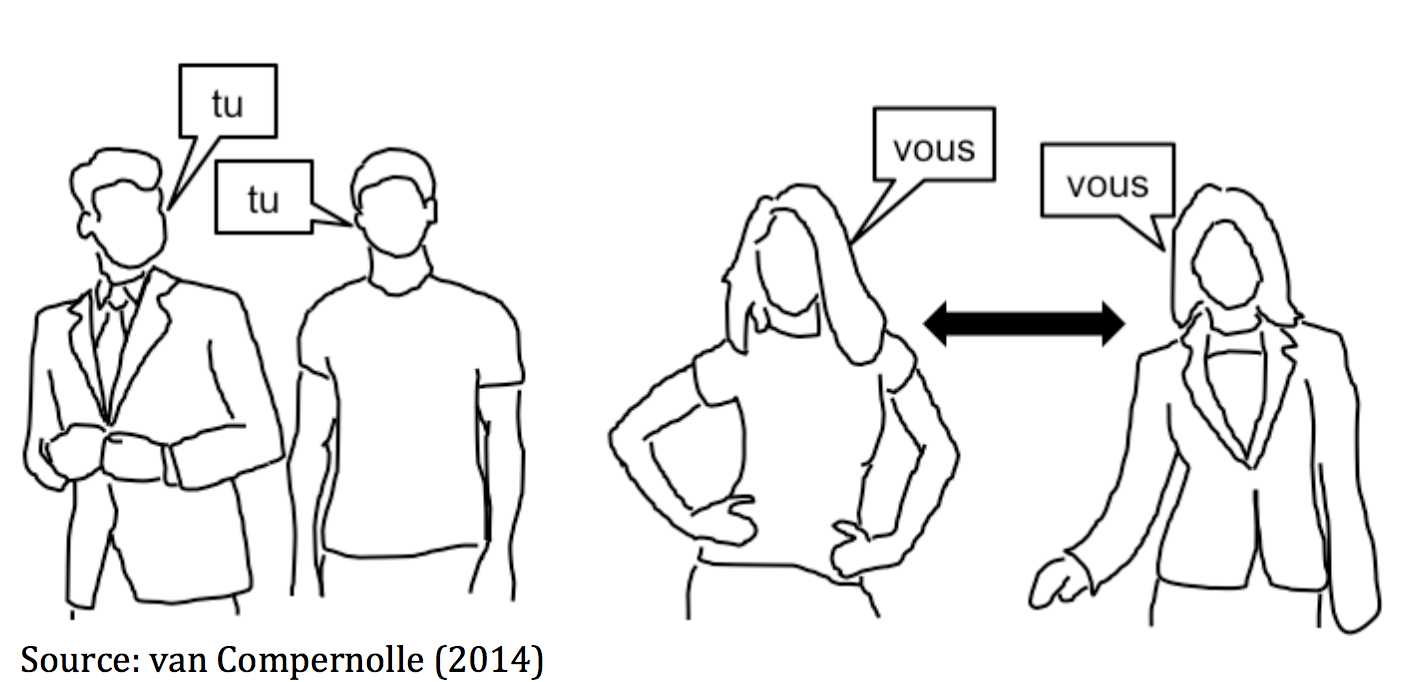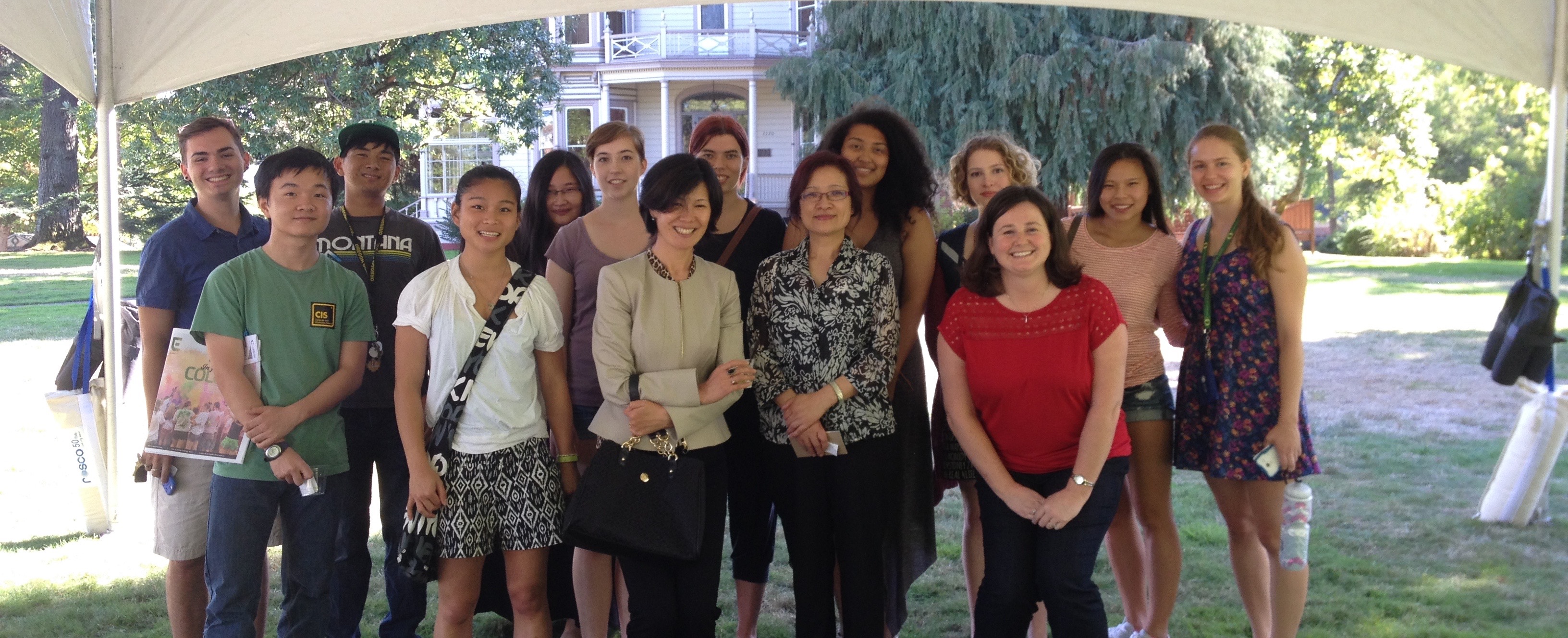Contents
Content Type: 5
Title: Oregon International Internship Program: Bridging Global and Local Perspectives
Body:
This September, CASLS welcomes soon-to-be teachers to Eugene and Springfield in a biannual session of the Oregon International Internship Program, OIIP. In this program, students form universities in China, Japan, and Taiwan gain valuable classroom experience by coming to the Eugene-Springfield area and shadowing a mentor elementary school teacher for four days a week. Not only does this provide students with practical teaching experience in an international context, but it also benefits the area schools. Interns bring with them a passion for education along with a vast knowledge of Chinese, Japanese, or Taiwanese culture and language; over the four to five month program this can translate into meaningful connections between the intern, students, and teachers. Interns are available at no cost and work closely with their partner schools, who each provide a teacher who is willing to integrate the intern into their classroom.
Newly Arrived OIIP Interns
Each Friday, students attend class at the University of Oregon where they learn pedagogy that they can then implement in the classroom. Additionally, students also learn about culture in the United States by living in a homestay for the duration of their internship. These families gain the opportunity to learn about the intern’s culture while sharing their own. Overall, OIIP provides interns with invaluable classroom experience, university credit, and the opportunity for meaningful connections. At the same time, OIIP enriches Eugene and Springfield area homes and schools with language and culture. Renée Petit Marshall, OIIP Coordinator, says: “The Oregon International Internship Program can be a transformative experience for these international interns. For many of them this is their first time not only in the U.S., but outside their home country. They learn valuable pedagogy from their mentor teachers here as well as make lasting connections with their homestay families and members of the community."
For more information about OIIP, how to become a homestay family, or how an OIIP intern can join your classroom, please visit: https://casls.uoregon.edu/pages/studentprograms/oiip.php
Source: CASLS Spotlight
Inputdate: 2015-08-03 14:15:27
Lastmodifieddate: 2015-09-14 03:28:48
Expdate:
Publishdate: 2015-09-14 02:15:01
Displaydate: 2015-09-14 00:00:00
Active: 1
Emailed: 1
Isarchived: 0
Content Type: 5
Title: CASLS in Pennsylvania!: Workshop on Using Digital Games in the Language Classroom
Body:
At the Seventh Annual Language Educators Workshop, Dr. Julie Sykes, CASLS’ Director, led a workshop titled "Digital Games in the Language Classroom: A Professional Development Experience." The workshop addressed using digital games and game-like environments as resources for language learning. Participants explored the pedagogy underpinning the use of games, and examined which game-enhanced approaches are compatible with instructed L2 contexts.
The workshop engaged participants in designing their own classroom activities built around digital games to give tangible classroom materials that united both theory and practice to create practical activities that are tailored to each participant’s K-16 context. With a focus on engagement, there was never a dull moment. Dr. Sykes reflected, "It's really exciting to work with amazing teachers looking to innovate in their classroom. I always learn something new." By engaging digital games’ pedagogical relevance, participants are now ready to implement some of what they learned in their own language classrooms.
Source: CASLS Spotlight
Inputdate: 2015-08-03 15:45:15
Lastmodifieddate: 2015-09-21 03:21:45
Expdate:
Publishdate: 2015-09-21 02:15:01
Displaydate: 2015-09-21 00:00:00
Active: 1
Emailed: 1
Isarchived: 0
Content Type: 3
Title: Concept Development and Advanced L2 Capability
Body:
Rémi A. van Compernolle (vancomp@cmu.edu) of Carnegie Mellon University is the Center for Advanced Language Proficiency Education and Research (CALPER) Project Coordinator for French and Concept-Based Instruction.
Inspired by Vygotskian sociocultural psychology, a number of recent studies of advanced second language (L2) capabilities have explored concept development. Particular focus has been on concept-based instruction (Lantolf & Poehner, 2014), or CBI, which centers curricular goals around scientific concepts in the form of categories of meaning. This means that instead of designing pedagogical interventions around particular forms, instruction aims to lead learners toward a systematic understanding of the kinds of meanings they can create, and then to connect those potential meanings to relevant forms.
Negueruela (2003), in an early study in a North American context, outlined some of the main principals of CBI. First, high quality explanations of systematic concepts are necessary. These should be focused on meaning rather than impressionistic rules of thumb for the use of forms. Second, the concepts should be materialized in the form of pedagogical diagrams, such as flowcharts, pictures, and even 3-D models, that capture the essence of the meaning potential of the concept. Third, learners should verbalize their understandings in two ways: explaining the concepts as such and explaining their performances through the concepts. Fourth, the concepts should be put into practice through communicative tasks. This involves connecting learners’ developing conceptual knowledge to performance abilities.
An example from my own work in pragmatics (van Compernolle 2014, van Compernolle & Henery, 2014) centers on the teaching of self-presentation, social distance, and power. These concepts are illustrated through second-person address pronouns (e.g., tu and vous in French; tú and usted in Spanish). The concepts are explained in two ways: a small course book, either in paper or in electronic format (e.g., through Blackboard), and teacher-led discussions. The concepts are also illustrated through pedagogical diagrams. For instance, social distance is presented as the difference between two people standing close together (social closeness, solidarity) and two people standing farther apart (social distance, deference) (see diagram below). In each image, the relevant form is provided in order to show students one way in which these categories of meaning may be indexed in language. Learners are asked to explain in verbal or written form how they understand the concepts and how they apply to language use.

Problem-solving and communicative tasks are also included in the pedagogy. Appropriateness judgment tasks prompt learners to choose appropriate forms (e.g., tu or vous) in a variety of social-interactive situations and to explain their choices using the concepts (verbalization). Discourse completion tasks and strategic interaction scenarios can then link conceptual knowledge to the use of language, and this is especially useful if verbalization is made part of the communicative task (e.g., explaining performance after the fact).
You can see the full lesson here: https://sites.google.com/site/frenchpragmatics/lesson-1-tu-or-vous.
References
Lantolf, J. P., & Poehner, M. E. (2014). Sociocultural theory and the pedagogical imperative in L2 education. New York: Routledge.
Negueruela, E. (2003). A sociocultural approach to teaching and researching second language: Systemic-theoretical instruction and second language development. Unpublished doctoral dissertation: The Pennsylvania State University.
van Compernolle, R. A. (2014). Sociocultural theory and L2 instructional pragmatics. Bristol: Multilingual Matters.
van Compernolle, R. A., & Henery, A. (2014). Instructed concept appropriation and L2 pragmatic development in the classroom. Language Learning, 64, 549-578.
Source: CASLS Topic of the Week
Inputdate: 2015-08-03 16:24:54
Lastmodifieddate: 2015-09-07 03:27:02
Expdate:
Publishdate: 2015-09-07 02:15:01
Displaydate: 2015-09-07 00:00:00
Active: 1
Emailed: 1
Isarchived: 0
Content Type: 2
Title: LinguaFolio Online Winnner
Body:
Congratulations to Kassy Miller, a Spanish teacher in Kansas, who responded first to our offer of thirty free student subscriptions to LinguaFolio Online.
Source: CASLS
Inputdate: 2015-08-03 17:01:40
Lastmodifieddate: 2015-08-10 03:23:27
Expdate:
Publishdate: 2015-08-10 02:15:01
Displaydate: 2015-08-10 00:00:00
Active: 1
Emailed: 1
Isarchived: 0
Content Type: 5
Title: Meet Chinese Flagship Student Katriel Perry
Body:
 For more than ten years, the University of Oregon Flagship Program has provided students with the opportunity to develop professional-level Chinese while studying any academic major of their choice. The Flagship Program curriculum includes cross-disciplinary study that blends language and culture learning with contemporary topics, and also includes meaningful study abroad with full-time internships in China.
For more than ten years, the University of Oregon Flagship Program has provided students with the opportunity to develop professional-level Chinese while studying any academic major of their choice. The Flagship Program curriculum includes cross-disciplinary study that blends language and culture learning with contemporary topics, and also includes meaningful study abroad with full-time internships in China.
Katriel Perry is a fourth year undergraduate student at the University of Oregon and a Flagship student who is majoring in Chinese literature and Asian studies. Currently, she is gearing up for her capstone year of study abroad at Nanjing University and an internship in an area of her interest. She will direct enroll in courses related to her major and live with a Nanjing roommate and tutor from within her chosen academic field. The Flagship Nanjing Center will work with her to arrange an internship that fits her profile and professional goals.
“I am really excited!” Ms. Perry says. “At the UO Flagship, I always see capstone returnees coming back and sharing their experiences abroad. I am always amazed by how fluent their Chinese is. They always emphasize how much the Nanjing program helps in improving their language skills quickly. I can’t wait to get started.”
Three things Ms. Perry likes the most about the Flagship Program are the opportunities for outside-of-class language support, the fun Chinese-related events, and the interesting course topics.
Join us in wishing Ms. Perry luck on her upcoming capstone year in Nanjing!
The Oregon Chinese Flagship Program is funded by The Language Flagship through the National Security Education Program.
Source: CASLS Spotlight
Inputdate: 2015-08-06 08:38:20
Lastmodifieddate: 2015-08-31 03:23:18
Expdate:
Publishdate: 2015-08-31 02:15:01
Displaydate: 2015-08-31 00:00:00
Active: 1
Emailed: 1
Isarchived: 0
Content Type: 5
Title: Welcome Chinese Flagship Students
Body:
As the first week of classes at the University of Oregon commences, we’d like to welcome new and returning University of Oregon Chinese Flagship students.
Chinese Flagship students are undergraduate students admitted and accepted into the UO Chinese Flagship Program. These students are committed to enrolling in at least one Chinese course per term until graduation, attending summer intensive programs in the US and China, engaging in Flagship-related activities outside of the classroom, and completing the overseas Capstone study abroad and internship program in China during their junior or senior year.

New and returning Chinese Flagship students, faculty, and staff at UO's Week of Welcome Chinese Flagship Meet and Greet event.
Source: CASLS Spotlight
Inputdate: 2015-08-06 09:11:02
Lastmodifieddate: 2015-09-28 02:27:04
Expdate:
Publishdate: 2015-09-28 02:15:01
Displaydate: 2015-09-28 00:00:00
Active: 1
Emailed: 1
Isarchived: 0
Content Type: 4
Title: Connecting Authentic Language with Self
Body:
Stephanie Knight is the Language Technology Specialist for CASLS at the University of Oregon. This activity was developed in order to compliment this week’s Topic of the Week.
This activity aims to draw intermediate-mid, intermediate-high, and advanced-low students to consider authentic language use while researching and reflecting on topics that relate to their own interests. In completing this activity, students are engaged in interpersonal speaking and writing, presentational writing, and interpretive reading and listening. This activity has three major components: analysis of a written text, analysis of audio texts, and interpersonal communication with self-reflection.
Modes: Interpersonal Speaking, Interpersonal Writing, Presentational Writing, Interpretive Listening, Interpretive Reading
Objectives:
- Students will consider how language is used by expert speakers of the target language.
- Students will discover linguistic differences that exist among speakers of a target language.
- Students will critically analyze authentic texts in order to draw cultural comparisons outside of linguistic differences.
- Students will support analysis with specific evidence from texts.
- Students will engage in conversations with expert speakers of the target language.
- Students will consider their own use of the target language and develop a plan for improvement.
Resources: Student handout, list of possible resources, grading scale for student reflections
Procedure:
- Discuss the student handout and its three components as a class. Make sure to emphasize the expectation that students focus on authentic language use and to clearly outline expectations as they relate to citing resources. If the students struggle with citations, recommend that they visit the Perdue Online Writing Lab (https://owl.english.purdue.edu/owl/).
- Connect students with possible sources to use in completing their research. Give time for the students to brainstorm additional sources as a class. Emphasize the importance of internet safety at this time. A good list of safety tips is found at http://www.nationalcac.org/prevention/internet-safety-kids.html.
- Find a short written text in the target language and outline the response required on the handout as a class.
- Find audio texts in the target language and outline the response required on the handout as a class.
- If computers or other web-capable devices are available, give the students a chance to practice communicating with synchronous chat on www.livemocha.com or one of the other listed mechanisms.
- Give the students at least 30 minutes to collect some sources so that you can help if they run into any issues. Remind students that the search terms that they use should be in the target language.
- Give the students a due date for completing the activity.
Notes:
It is recommended that this activity be repeated throughout the school year. While the first run-through of the activity may require significant class time, subsequent attempts should be more and more autonomous until the activity is purely assigned as a homework assignment. Given the considerable research and analytical efforts undertaken by the students, they should be given at least a week to complete all of its components.
When adapting this activity for students at lower proficiency levels, select less complex texts as your class examples. Also, broaden the texts to include more every-day items such as food containers, restaurant menus, and instruction manuals. While students at higher proficiency levels would be expect to write all of their reflections in the target language, students at lower proficiency levels should be allowed to write their reflections in the native language if needed.
Lastly, so that grading of the activity doesn’t become prohibitive, devise a quick method to check student reflections. For example, they could be graded with this scale.
Source: CASLS Activity of the Week
Inputdate: 2015-08-08 10:09:56
Lastmodifieddate: 2015-08-31 03:23:18
Expdate:
Publishdate: 2015-08-31 02:15:01
Displaydate: 2015-08-31 00:00:00
Active: 1
Emailed: 1
Isarchived: 0
Content Type: 2
Title: Tell Us How We're Doing
Body:
We at CASLS want InterCom to be an excellent resource for practicing language professionals. You can help us to do so by taking this survey: https://oregon.qualtrics.com/jfe/form/SV_0olSCReElqjqUFD. Thank you for your feedback.
Source: CASLS
Inputdate: 2015-08-08 11:00:12
Lastmodifieddate: 2015-08-10 03:23:27
Expdate:
Publishdate: 2015-08-10 02:15:01
Displaydate: 2015-08-10 00:00:00
Active: 1
Emailed: 1
Isarchived: 0
Content Type: 1
Title: Book: Exploring Listening Strategy Instruction Through Action Research
Body:
From http://www.palgrave.com/page/detail/?k=9781137521897
Exploring Listening Strategy Instruction Through Action Research
By Joseph Siegel
Published by Palgrave Macmillan
Listening in a second language is a challenge for students and teachers alike. While learners often find it the most difficult skill to acquire in a new language, teachers also struggle with how to teach it. This book provides a personal account of an action research intervention involving listening strategy instruction to investigate the viability of this innovative pedagogy in the Japanese university context. Each action research stage (plan, act, observe, reflect) is described in detail, showing how action research can be realized in practice. The book offers teachers a theoretical and practical framework for developing a listening strategies program and considers the factors that influence the effectiveness of such methodology. By providing an alternative to standard approaches for second language listening instruction, this book will be of interest to language teachers and researchers, teachers-in-training, graduate students, and teacher educators.
Visit the publisher’s website at http://www.palgrave.com/page/detail/?k=9781137521897
Source: Palgrave Macmillan
Inputdate: 2015-08-09 13:22:23
Lastmodifieddate: 2015-08-10 03:23:27
Expdate:
Publishdate: 2015-08-10 02:15:01
Displaydate: 2015-08-10 00:00:00
Active: 1
Emailed: 1
Isarchived: 0
Content Type: 1
Title: Book: Globalizing Language Policy and Planning
Body:
From http://www.palgrave.com/page/detail/?k=9781137005601
Globalizing Language Policy and Planning: An Irish Language Perspective
By Máiréad Moriarty
Published by Palgrave Macmillan
Through an examination of the Irish language context this volume examines the changing value and function of minority languages and what this may mean for future efforts to revive the Irish language. It provides an account of four sites of minority language use including television, comedy, Hip Hop, and tourism. Each of these sites represents domains in which the use of Irish has changed significantly as a consequence of processes of globalization. Through an examination of these four areas, it becomes clear that they offer transgressive spaces for minority language ideologies and use.
Visit the publisher’s website at http://www.palgrave.com/page/detail/?k=9781137005601
Source: Palgrave Macmillan
Inputdate: 2015-08-09 13:23:41
Lastmodifieddate: 2015-08-10 03:23:27
Expdate:
Publishdate: 2015-08-10 02:15:01
Displaydate: 2015-08-10 00:00:00
Active: 1
Emailed: 1
Isarchived: 0
